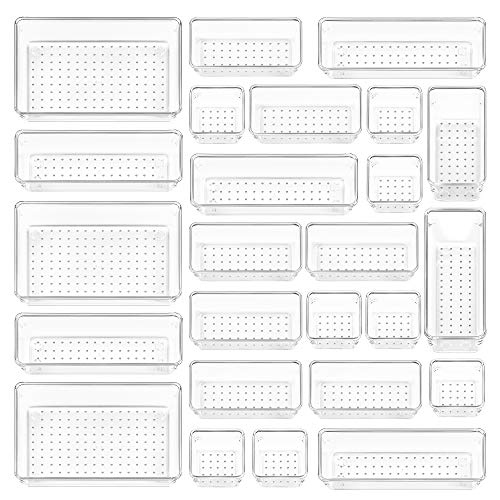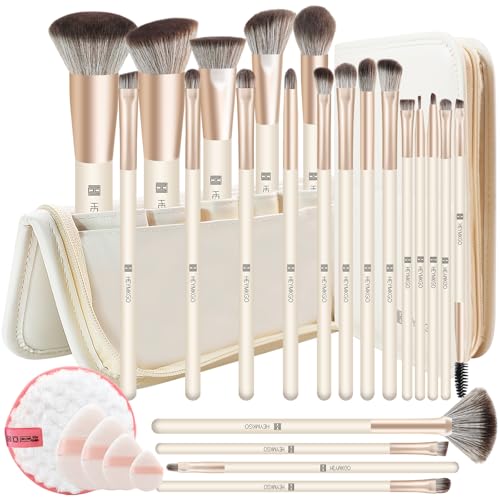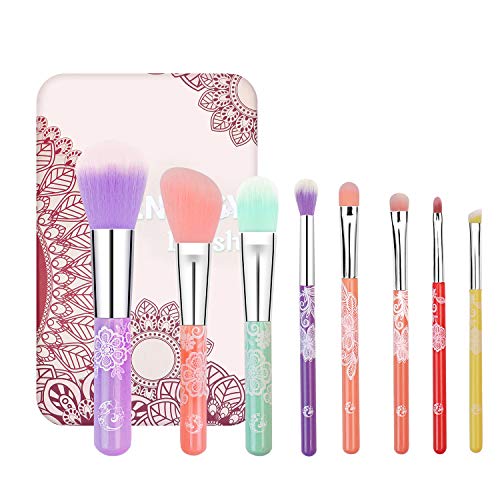- Joined
- Apr 23, 2006
- Messages
- 6,522
- Reaction score
- 0
Just a reminder of what diet can do for your skin health.
Introduction
Nutrients obtained from the diet play a role in the integrity of the skin. Nutrient deficiencies can result in skin problems.
About
The skin is the largest organ of the human body. It functions as a protective covering, a key sensing organ, an oil producer and an important organ of elimination. The skin must be well nourished to stay healthy. It requires good circulation through the millions of tiny capillaries, good nerve function and a ready supply of nutrients to aid its growth and repair. Many lifestyle factors including stress, smoking and UV radiation from excessive sun exposure can lead to premature ageing of the skin.
The diet also plays a role in certain skin disorders such as eczema and acne. A diet which is high in fresh fruits and vegetables and low in fat and sugar will often help to improve problem skin. An intolerance to certain foods which are normally considered to be healthy, such as salicylates which are found in many types of fruit and vegetables, can also affect the skin by producing a rash. The extent to which the diet affects the skin will vary from person to person.
Vitamin a
Low levels of vitamin A often cause the skin to become dry and scaly. All parts of the body are affected, however, the legs can show more severe signs than the head and torso. Skin problems which result in a build-up of scaly or horny skin (keratinising), such as eczema and psoriasis, may benefit from vitamin A supplementation. Vitamin A can be toxic, however, in high doses and should only be taken to treat skin conditions with medical guidance. Good food sources of vitamin A include; liver, fish liver oil, egg yolks, dairy products, spinach, broccoli, Brussel Sprouts, asparagus, carrots, sweet potato, pumpkin, parsley, apricots, peaches, mango, rockmelon, cherries etc.
Vitamin e
Free radicals are unstable molecules in the body. The antioxidant properties of vitamin E help to protect the skin from the damaging effects of free radical activity in the body which can cause damage to cells. Premature ageing may occur in part because of the damage caused to cells by free radicals attacking collagen and elastin protein fibres that support the skin and keep it taut. Vitamin E can be obtained from the diet and taken internally as a supplement. The oil can be also applied externally to the skin and is a common ingredient in moisturising skin products. Good food sources of vitamin E include; liver, egg yolks, soybeans, uncooked green peas, spinach, vegetable/seed/nut oils such as wheatgerm oil.
Vitamin E applied to the skin within 2 minutes of excessive sun exposure may ease the redness inflammation and swelling associated with sunburn.
Essential fatty acids
Normal skin repair, skin flexibility and moisture content are dependent upon an adequate intake of essential fatty acids (EFAs). The body is unable to directly produce EFAs which must be obtained from the diet. Low dietary levels of EFAs, may result in skin problems such as eczema, dermatitis and dandruff. Good food sources of EFAs include fish oils, linseeds, sunflower seeds, fresh walnuts and wholegrains. Evening primrose oil is a good source of EFAs and is available as a nutritional supplement in capsules.
VITAMIN C
Vitamin C plays an important role in determining the condition of the skin. It is involved with the formation of collagen, bone, teeth and blood vessels. The antioxidant property of Vitamin C also helps to maintain healthy skin. Many skin disorders occur as a result of poor elimination and the accumulation of internal waste. Drinking between 6 to 8 glasses of fresh water each day and a low fat and high fibre diet combined with an adequate intake of vitamin C helps to stimulate the elimination of waste matter and the mopping up of free radical molecules (the by-products of accumulated wastes and rancid fats in the body) which can damage skin cells. Good food sources of vitamin C include; citrus fruits (oranges, lemons, limes, grapefruit), rose hips, strawberries, red and green capsicum, broccoli, tomatoes, parsley etc.
B VITAMINS
The B group vitamins are very important for maintaining healthy skin. In some cases a deficiency of one particular B vitamin may be causing skin problems, however, it is best to take a general B complex supplement to maintain a proper balance within the body.
- A lack of vitamin B2 (riboflavine) can cause deep ridges and inflammation of the skin at the corners of the mouth, very oily skin, dry flaky patches of skin and scaly and greasy dandruff. Vitamin B2 is easily destroyed by light and heat e.g., boiling and roasting foods can result in considerable B2 loss. Alcoholics and people who eat a lot of sweet foods are prone to developing a B2 deficiency.
- A lack of vitamin B3 (niacin) may cause the skin to become flushed and appear sunburnt with red, itchy sores that can flake and blister. The areas of the body which are most frequently exposed to sunlight are usually most affected e.g., the neck, back of the hands, forearms, face etc. People who have a diet which is restricts calorie intake and is low in protein, fruits, vegetables, eggs and dairy foods and high in fats and carbohydrates are more prone to developing a vitamin B3 deficiency.
- A lack of vitamin B6 (pyridoxine) can cause symptoms which appear with a deficiency of EFAs i.e., scaly dermatitis developing on the neck, forearms, elbows and thighs.
- A lack of vitamin B5 may cause the skin to appear dry and wrinkles may develop prematurely. This vitamin plays a role in the production of collagen and is required for the skin to manufacture oils and fats which protect the skin. Fatty acids in the natural oil of the skin, for example, help to guard against fungal attacks.
- The best ways to ensure adequate amounts of B vitamins are being obtained is to have a well balanced diet that is high in fresh fruits, vegetables and whole grains, includes moderate amounts of lean meat, fish, dairy products, eggs, nuts and seeds and is low in fat and sugar.
SILICA
Silica is a mineral which is found in bones, artery walls, connective tissue, hair, nails and skin. The main action of silica is to provide strength and flexibility to these parts of the body. A deficiency of silica reduces the body's wound healing ability and skin elasticity. Good food sources of silica include the parts of food which are often discarded e.g., fruit and vegetable peel, husks and the 'stringy' parts of mango, celery, asparagus and rhubarb.
ZINC
Zinc is an essential trace element which is most important for cell production. Zinc is stored in the body, mainly in the skin. It is needed to allow Vitamin A to be released from the liver, therefore, taking a vitamin A supplement will be of little benefit to the skin if there is a zinc deficiency. A zinc deficiency can result in poor wound healing and clinical trials have revealed that increasing the intake of zinc in these cases can be of benefit. Good food sources of zinc include raw oysters, seafood, pumpkin seeds and ginger.
SELENIUM
- The antioxidant mineral selenium preserves tissue elasticity and slows down the ageing and hardening of of tissues caused by oxidation. Food sources of selenium include wholegrain cereals, seafood, garlic and eggs.
- In animal studies, selenium supplements have been shown to offer protection from the damageing rays of the sun, both on a daily basis and after excessive sun exposure (sunburn).
yahoohealth.com
Introduction
Nutrients obtained from the diet play a role in the integrity of the skin. Nutrient deficiencies can result in skin problems.
About
The skin is the largest organ of the human body. It functions as a protective covering, a key sensing organ, an oil producer and an important organ of elimination. The skin must be well nourished to stay healthy. It requires good circulation through the millions of tiny capillaries, good nerve function and a ready supply of nutrients to aid its growth and repair. Many lifestyle factors including stress, smoking and UV radiation from excessive sun exposure can lead to premature ageing of the skin.
The diet also plays a role in certain skin disorders such as eczema and acne. A diet which is high in fresh fruits and vegetables and low in fat and sugar will often help to improve problem skin. An intolerance to certain foods which are normally considered to be healthy, such as salicylates which are found in many types of fruit and vegetables, can also affect the skin by producing a rash. The extent to which the diet affects the skin will vary from person to person.
Vitamin a
Low levels of vitamin A often cause the skin to become dry and scaly. All parts of the body are affected, however, the legs can show more severe signs than the head and torso. Skin problems which result in a build-up of scaly or horny skin (keratinising), such as eczema and psoriasis, may benefit from vitamin A supplementation. Vitamin A can be toxic, however, in high doses and should only be taken to treat skin conditions with medical guidance. Good food sources of vitamin A include; liver, fish liver oil, egg yolks, dairy products, spinach, broccoli, Brussel Sprouts, asparagus, carrots, sweet potato, pumpkin, parsley, apricots, peaches, mango, rockmelon, cherries etc.
Vitamin e
Free radicals are unstable molecules in the body. The antioxidant properties of vitamin E help to protect the skin from the damaging effects of free radical activity in the body which can cause damage to cells. Premature ageing may occur in part because of the damage caused to cells by free radicals attacking collagen and elastin protein fibres that support the skin and keep it taut. Vitamin E can be obtained from the diet and taken internally as a supplement. The oil can be also applied externally to the skin and is a common ingredient in moisturising skin products. Good food sources of vitamin E include; liver, egg yolks, soybeans, uncooked green peas, spinach, vegetable/seed/nut oils such as wheatgerm oil.
Vitamin E applied to the skin within 2 minutes of excessive sun exposure may ease the redness inflammation and swelling associated with sunburn.
Essential fatty acids
Normal skin repair, skin flexibility and moisture content are dependent upon an adequate intake of essential fatty acids (EFAs). The body is unable to directly produce EFAs which must be obtained from the diet. Low dietary levels of EFAs, may result in skin problems such as eczema, dermatitis and dandruff. Good food sources of EFAs include fish oils, linseeds, sunflower seeds, fresh walnuts and wholegrains. Evening primrose oil is a good source of EFAs and is available as a nutritional supplement in capsules.
VITAMIN C
Vitamin C plays an important role in determining the condition of the skin. It is involved with the formation of collagen, bone, teeth and blood vessels. The antioxidant property of Vitamin C also helps to maintain healthy skin. Many skin disorders occur as a result of poor elimination and the accumulation of internal waste. Drinking between 6 to 8 glasses of fresh water each day and a low fat and high fibre diet combined with an adequate intake of vitamin C helps to stimulate the elimination of waste matter and the mopping up of free radical molecules (the by-products of accumulated wastes and rancid fats in the body) which can damage skin cells. Good food sources of vitamin C include; citrus fruits (oranges, lemons, limes, grapefruit), rose hips, strawberries, red and green capsicum, broccoli, tomatoes, parsley etc.
B VITAMINS
The B group vitamins are very important for maintaining healthy skin. In some cases a deficiency of one particular B vitamin may be causing skin problems, however, it is best to take a general B complex supplement to maintain a proper balance within the body.
- A lack of vitamin B2 (riboflavine) can cause deep ridges and inflammation of the skin at the corners of the mouth, very oily skin, dry flaky patches of skin and scaly and greasy dandruff. Vitamin B2 is easily destroyed by light and heat e.g., boiling and roasting foods can result in considerable B2 loss. Alcoholics and people who eat a lot of sweet foods are prone to developing a B2 deficiency.
- A lack of vitamin B3 (niacin) may cause the skin to become flushed and appear sunburnt with red, itchy sores that can flake and blister. The areas of the body which are most frequently exposed to sunlight are usually most affected e.g., the neck, back of the hands, forearms, face etc. People who have a diet which is restricts calorie intake and is low in protein, fruits, vegetables, eggs and dairy foods and high in fats and carbohydrates are more prone to developing a vitamin B3 deficiency.
- A lack of vitamin B6 (pyridoxine) can cause symptoms which appear with a deficiency of EFAs i.e., scaly dermatitis developing on the neck, forearms, elbows and thighs.
- A lack of vitamin B5 may cause the skin to appear dry and wrinkles may develop prematurely. This vitamin plays a role in the production of collagen and is required for the skin to manufacture oils and fats which protect the skin. Fatty acids in the natural oil of the skin, for example, help to guard against fungal attacks.
- The best ways to ensure adequate amounts of B vitamins are being obtained is to have a well balanced diet that is high in fresh fruits, vegetables and whole grains, includes moderate amounts of lean meat, fish, dairy products, eggs, nuts and seeds and is low in fat and sugar.
SILICA
Silica is a mineral which is found in bones, artery walls, connective tissue, hair, nails and skin. The main action of silica is to provide strength and flexibility to these parts of the body. A deficiency of silica reduces the body's wound healing ability and skin elasticity. Good food sources of silica include the parts of food which are often discarded e.g., fruit and vegetable peel, husks and the 'stringy' parts of mango, celery, asparagus and rhubarb.
ZINC
Zinc is an essential trace element which is most important for cell production. Zinc is stored in the body, mainly in the skin. It is needed to allow Vitamin A to be released from the liver, therefore, taking a vitamin A supplement will be of little benefit to the skin if there is a zinc deficiency. A zinc deficiency can result in poor wound healing and clinical trials have revealed that increasing the intake of zinc in these cases can be of benefit. Good food sources of zinc include raw oysters, seafood, pumpkin seeds and ginger.
SELENIUM
- The antioxidant mineral selenium preserves tissue elasticity and slows down the ageing and hardening of of tissues caused by oxidation. Food sources of selenium include wholegrain cereals, seafood, garlic and eggs.
- In animal studies, selenium supplements have been shown to offer protection from the damageing rays of the sun, both on a daily basis and after excessive sun exposure (sunburn).
yahoohealth.com


































